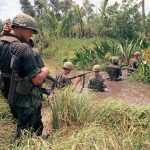
I started going to camp in 1968. We were still just children, but we already had Vietnam to think about. The evening news was a body count. At camp, we didn’t see the news, but we listened to Eric Burdon and the Animals’ Sky Pilot while doing our beadwork with Father Pekarski.
Pekarski looked like Grandpa from The Munsters. He was bald with a scowl and a growl, wearing shorts and an official camp tee shirt over his pot belly. The local legend was that at night, before going out to do his vampire thing, he would come in and mix up your beads so that the red ones were in the blue box, and the black ones were in the white box. Then, he would twist the thread on your bead loom a hundred and twenty times so that it would be impossible to work with the next day. And laugh. In fact, he was as nice a guy as you could ever want to know.
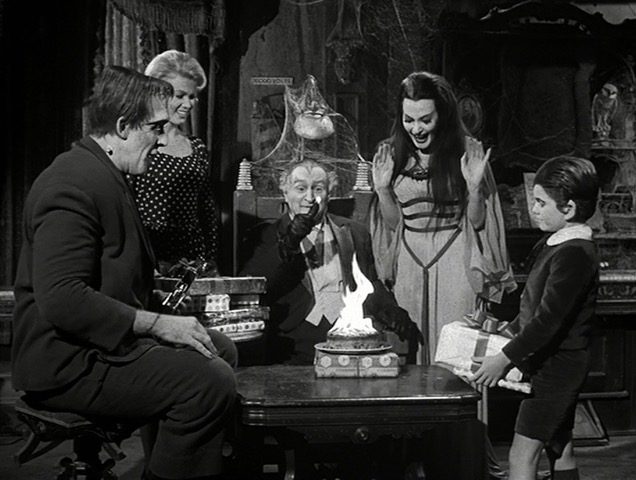
Back then, bead-craft might have seemed like a sort of “feminine” thing to be doing at a boys’ camp. We considered it an Indian thing to do. Of course, we didn’t know squat about real Native Americans, but for little boys in the sixties, “the Indians” were the quintessential embodiment of manly courage, righteous rebellion, and strength, so we wanted to be like them in every way. Our camp counselors thought bead-craft was a good way to get rowdy boys to sit still in the shade for thirty-five minutes on a July afternoon in the Hill Country. We accepted. Besides, George did bead-craft with us, and George was cool.
George was one of our counselors. He was almost eligible for the draft and he had a girlfriend. That made him a serious hero for little boys. While he worked, he would comment on the war. Or get quiet and turn the radio up when KTSA played the Sky Pilot.
Soon there’ll be blood, and many will die
Mothers and fathers back home they will cry.
The Sky Pilot was seven and a half minutes, two sides of a 45-rpm single, complete with war noises and patriotic bagpipes, surreptitiously recorded at a solemn military funeral.
Eric Burdon had done his homework. But his song was from another time and another war. His sky pilot was Icarus in a biplane, you’ll never, ever, ever reach the sky. But for us, it was all about Vietnam. It was becoming impossible to rescue gallantry and honor from that quagmire. The Sky Pilot, and George’s reverence for it, had taught us the unthinkable: to question patriotism, religion, and long, hot afternoons hanging with the boys at the rifle range. Trying to keep a steady hand. Trying desperately to earn all the coveted NRA marksmanship medals so that we, too, could become soldiers, one day. But, was that even a good thing, anymore?
You’re soldiers of God, you must understand
The fate of your country is in your young hands
Eric Burdon was on the edge. He had a bad boy image. Not the shirtless mayhem of the ‘80’s; not the wanton outpouring of staged violence that turned the crowd comfortably numb. Eric still wore the coat and tie that you would expect to see on any of his polite contemporaries, but, on him, they looked rough, as if it were the first time he had ever gotten dressed up. Eric was on the edge, but not over the edge. Not numbed or comfortable, we were possessed, spellbound, and impassioned.
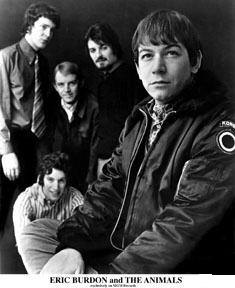
We learned everything we needed to know on KTSA. When we were ten, it made us wonder. When we turned thirteen, it made our hands tremble and our hearts pound. That was AM radio, back when broadcast meant broad. You could hear KTSA loud and clear anywhere in South Texas, especially, after dark. The songs on the radio called on us to step up.
Our consciousness of what a real man was, and what he ought to think, came from our counselors, Kurt and George, that first summer when we were only ten. Kurt was seventeen and already a cancer survivor. He had lost one to the silent beast, but he had more balls than all of us put together. George was only sixteen, but already dark and wise. He would sweat through the chest and pits of his tee-shirt pretty early in the day. We thought that was cool. He had lots of black wavy hair, a wisp of a beard and a deep gaze. To us, Kurt and George were titans.
They were just kids, really, not even old enough to vote but almost old enough to line up at boot camp and die in Vietnam. The draft was on everyone’s mind. Vietnam was the first-ever televised war. We could see bodies like our own, bodies like we wanted ours to be, mangled for reasons we couldn’t understand. We even saw the massacre at My Lai, and we learned to doubt that Americans were always the good guys.
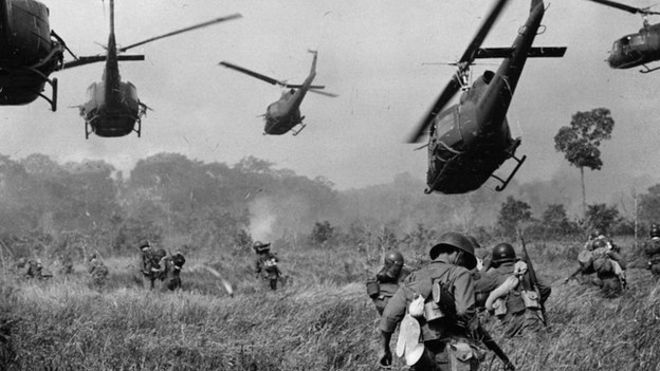
My first summer at camp, Kurt and George were absolutely in charge of us for two whole weeks. There was no adult interference and so, no reason to distrust or suspect. When you were ten, adults were the enemy. They always had a hidden agenda, something they wanted and ways to get it. Adults could blackmail you. They would stop at nothing to gain absolute control of little boys’ thoughts and impulses. And, they swore that what they wanted was good for you.
For fourteen days that summer, we were free. Ours was an ideal world, even if it was only temporary. The influence that Kurt and George had on who we were and who we wanted to be was virtually unlimited. We worshipped them. We would have gone anywhere with them. We would have done anything to please them. We would have given everything to wear what they wore, to smell how they smelled, to know all the mysterious things they knew, and to move through the world as they did, fearless, tall and strong.
One afternoon at rest period, Kurt and George came into the bunkhouse and asked for silence. That was unusual. We were all in our underwear and we listened carefully. Rest period was on your bunk in your underwear. You didn’t have to sleep but you had to be quiet and horizontal. That was when we devoured our DC Comics and our Mad Magazines. Fruit of the Loom was the appropriate attire because it kept you inside, it cooled you down and, most importantly, it gave your favorite clothes an hour to air out.
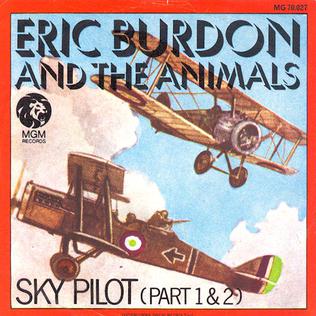
Kurt had found a nearly perfect flint spearhead at an Indian mound back in the hills, probably a Comanche artifact. We were in their hunting grounds, their sacred space, where they talked to eagles and buried their ancestors. Kurt’s spearhead was in his sock drawer, by his bunk, which was next to mine. We all knew about it, we all knew where he kept it and we were all proud of it. It was our spearhead. Kurt and George came to tell us that the spearhead had been stolen, and they knew who had done it. They were going to leave us alone during rest period that day, to give the boy who had stolen it a chance to put it back. If he did, there would be no questions asked. If he didn’t, he would be sent home in disgrace.
He did. It was (…). I saw him do it. My bunk was right there. He got up, supposedly to go to the bathroom, but he made a quick, unmistakable stop at Kurt’s sock drawer. It’s hard to hide a spearhead on your person when all you have on is your tidy whities, but it was really the stop that gave him away.
The repentant thief was careful, though, and no one saw him but me. Why he had taken it, we never knew. Insecure, I guess. Afraid that, unless he stole it, he would never acquire the power, the unspoken secret energy that could only be yours if you waited for it, the dynamism would most certainly elude you if you tried to take it by force instead of earning it.
No questions were asked. Kurt and George had practiced compassion to teach instead of punish. We did wonder whether they really knew who it was, or if their bet had been a gamble. We think they did know. When they explained the conditions of our impending ordeal, they were too calm to have been bluffing. When it was over, we would have followed them into battle. We would have followed them onto the streets to protest the war.
Vietnam was the inescapable quandary constantly ringing in our ears. We heard about it on KTSA. Dylan told us the answer was blowing in the wind. Peter, Paul and Mary railed against the cruel war raging; and Johnny having to fight. They taught us how to sing and why. They taught us to demand, with childlike innocence, where had all the flowers gone.
In the 60’s, not all of it was committed protest music. There was a lot of romantic pop, too, but it all came to smell of the war. There were songs about young couples that missed each other, songs that made every GI remember the girl he had left behind. Or, the girl he thought had left him behind. Ruby, are you contemplating going out somewhere? That was the anxiety. If a guy wasn’t around, she would find someone else. If he came home crippled, she might still love him as a friend, but she wouldn’t want him. Yes, it’s true that I’m not the man I used to be. Oh, Ruby, I still need some company. There was more than one way to get your manhood blown off.
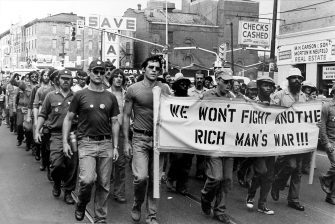
The GI anthem, though, was the one written by 16-year-old Michael Brown of The Left Banke. It reached number 5 on the charts in ‘66. Just walk away, Renée; You won’t see me follow you back home. They called it Baroque rock, because of the orchestral arrangement and the long, lonely flute solo. The empty sidewalks on my block are not the same; You’re not to blame. Michael and the boys had a sultry mumbling way about them that gave flesh to the burning a priori adolescent male resentment for adult manipulation, the secret decisions made in smoky rooms that made old men rich and young men die. That was a common feeling back in ‘68. It was generational. We were angry about Indochina. It was killing us.
More by Nathan Stone:
Romero
José and His Brothers
Three-year-olds on the world stage
You might also like:
15 Minute History | Ep 119: Beatlemania and the 55th Anniversary of the First Beatles Tour to the US
“London is Drowning and I, I Live by the River”: The Clash’s London Calling at 40
Great Books on Early Twentieth-Century Popular Music
Legacies of the Vietnam War
The views and opinions expressed in this article or video are those of the individual author(s) or presenter(s) and do not necessarily reflect the policy or views of the editors at Not Even Past, the UT Department of History, the University of Texas at Austin, or the UT System Board of Regents. Not Even Past is an online public history magazine rather than a peer-reviewed academic journal. While we make efforts to ensure that factual information in articles was obtained from reliable sources, Not Even Past is not responsible for any errors or omissions.


